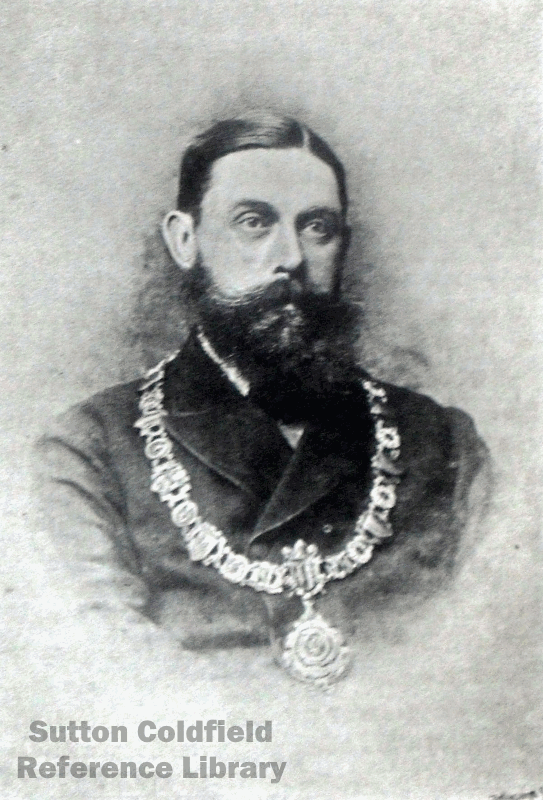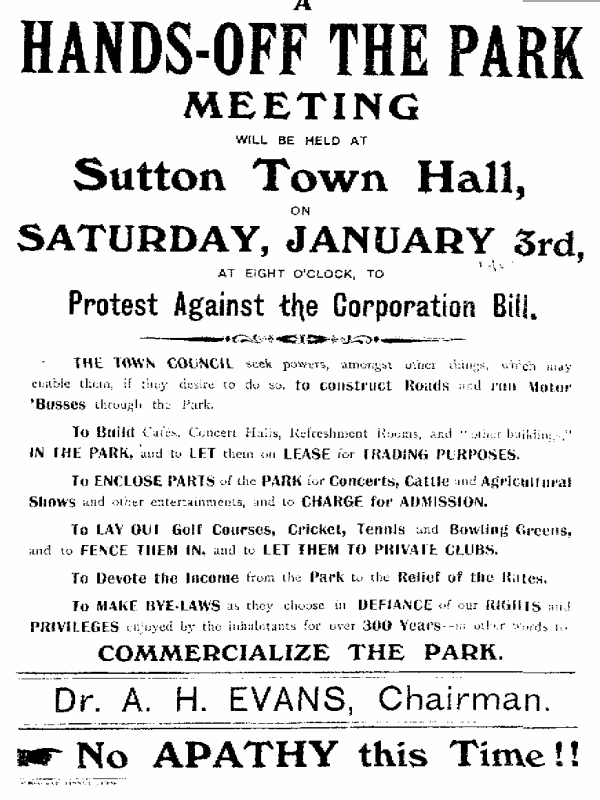George Eliot, the famous novelist, was born in 1819, daughter of Robert Evans and his second wife, and christened Mary Ann. By his first wife Robert Evans had a son, Robert, born in 1802; this Robert eventually married Jane, and they had several children, including Isaac, Robert, Frances and the much younger Alfred Henry - George Eliot’s niece and nephews. In 1854 George Eliot began living with a married man, George Henry Lewes, scandalising the Evanses, so she did not see much of her young nephew Alfred Henry, born in 1848. However, her first novel, Adam Bede, published in 1859, was a resounding success; her nephew Robert wrote to her in 1864 with news of the death of his father, who, he said, had a copy of Adam Bede in his hands on his deathbed.
So young Alfred Henry Evans had an aunt to be proud of. By 1871, aged 23, Alfred had qualified as a doctor - he and his mother were living with his married sister in a house called Mount Pleasant in Erdington. The head of this family, Charles Chavasse, was a wine merchant; he was the son of Thomas Chavasse of Wylde Green House, Sutton Coldfield, and one of his sons, Howard Chavasse, was training to be a doctor. In 1874 Alfred Evans went into partnership with Dr. Lakin, their Sutton practice being in Dr. Lakin’s house, 1-3 High Street. George Eliot’s novel, Middlemarch, published in 1872, (“the greatest novel in the English language”) features the ambitious young Doctor Lydgate; was her nephew Albert in her thoughts? She was often in his thoughts - Douglas Jones writes “in his study, Sir Alfred is said to have had books, photos and other items showing his connection with George Eliot.”
When Dr. Lakin was killed in an accident in 1877, Alfred Evans took over the practice and moved into the house, bringing his young nephew Howard Chavasse into the practice. Alfred Evans would remain at 1-3 High Street until his death in 1938. He was active in Sutton affairs, being elected to the Warden and Society, and when that was superseded by the Mayor and Corporation in 1886, he was elected as a councillor for Trinity Ward. At the first meeting of the new Council he was made an Alderman; J. Benjamin Stone was Mayor for the first four years, and then in 1890 Alfred Evans became Mayor of Sutton Coldfield. A short biography published in 1892 noted that “he has built up for himself a medical practice second to none in the district”, and that he had a somewhat retiring nature.
Evans declined to serve a second term as Mayor, but remained a driving force in the life of Sutton, not only promoting the Provident Dispensary and the Cottage Hospital, but acting as Chairman of the Cricket Club and President of Sutton’s first Golf Club. In 1920 he led the opposition to clauses in a proposed Act of Parliament which would allow development of Sutton Park, being the chairman of the “Hands off the Park” campaign. In 1924 he was “the most popular man in Sutton”; he was rewarded in 1926 with a knighthood granted “for political and public services”. He was made a Freeman of the Borough of Sutton Coldfield in 1931 for his long and distinguished service to the town. He died on Christmas Eve 1938 aged 91.

